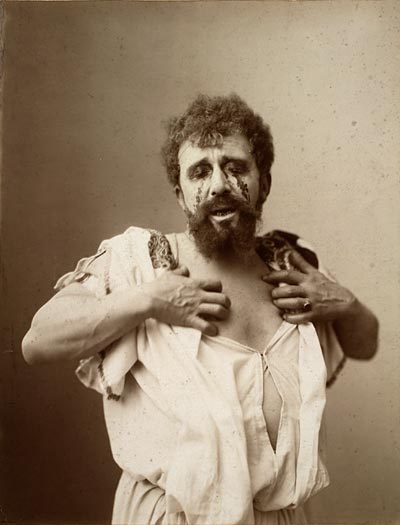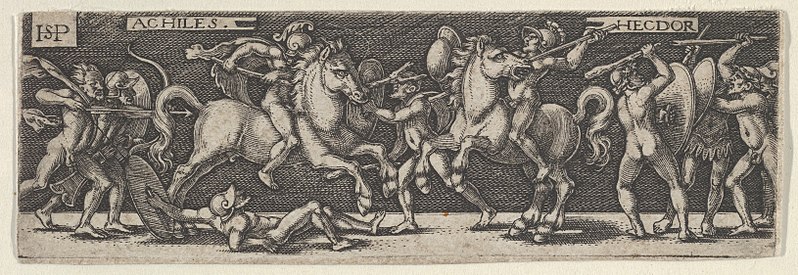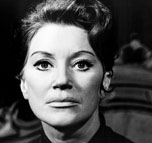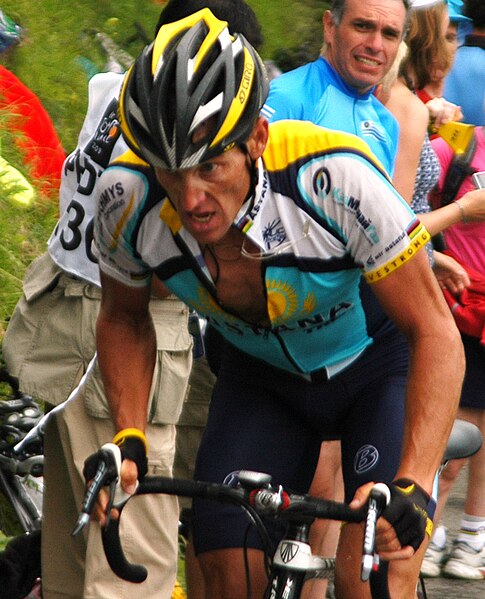Good news: E.L. Marker, the hybrid affiliate of WiDo Publishing, has issued a press release announcing my signed contract with them to publish my next historical novel, Forbidden Brownstones. For the press release, go here. I'm now working on the manuscript with an in-house editor. I anticipate publication early next year, which is fine, since I hope to publish a new work every year. (Until I run out of unpublished manuscripts; four to go, this being one of them.)
This year's work, New Yorkers: A Feisty People Who Will Unsettle, Madden, Amuse and Astonish You, was self-published and continues to get good editorial reviews (reviews by professionals), though not good reader reviews on Amazon. In fact, there is only one on Amazon to date, a 2-star review. I'm hoping there will be more, so as to balance that one out. Reviews can be short: a few sentences, one sentence, a phrase, a single word. So, readers, how about a review -- even a mini.
 |
AN EYE-GOUGING WHODUNIT,
SIEGFRIED AND LANCE ARMSTRONG
Last time we did two of the five basic stories, The Journey and Boy Meets Girl. Now we'll do the rest. For the third, I propose
Whodunit
Of course this makes us think of Earl Stanley Gardner's Perry Mason, Agatha Christie's Hercule Poirot and Miss Marple, Georges Simenon's Inspector Maigret, A. Conan Doyle's Sherlock Holmes, and countless others. But I propose an ancient forerunner of them all: Sophocles' Oedipus Rex. Only the Greeks could come up with a whodunit like this. To save Thebes from a devastating plague, Oedipus, the king of Thebes, sets out to discover the killer of his father Laius. Slowly, relentlessly, the truth comes out: he himself is the killer; worse still, he has unwittingly married his own mother, Jocasta. Horrified upon learning this, Jocasta hangs herself, and Oedipus gouges out his eyes in despair. Sophocles' haunting comment at the end: don't account a man happy until the last day of his life. Oedipus was a happy, successful, and much esteemed ruler, but in the end he lost it all. For me, this is the whodunit of whodunits, impossible to top.
 |
| Oedipus, as presented in a Dutch production, ca. 1896. |
A friend once told me of seeing Laurence Olivier in the role in a
double bill onstage. When Oedipus blinded himself, Olivier uttered a shriek such as the audience had never heard; it haunted them throughout the intermission. Then, in the second play of the evening, Olivier came on as a Restoration fop, glib, silly, and amusing; coming right after Oedipus, it was the most astonishing transformation conceivable. And for my friend, a veteran theatergoer, the most brilliant and unforgettable performance that he had ever experienced.
For the fourth basic story I suggest
Travails of the Hero
"Travails"? Why not "Troubles" or "Problems"? "Travails" sounds a bit hifalutin. Exactly: I want hifalutin.
To be a hero -- or heroine -- one has to have obstacles to overcome, monsters to slay, villains to defeat. Assuming, of course, that the story ends in triumph. In the Iliad Achilles, wronged by the Greek leader Agamemnon, broods in his tent, allowing the Trojans to drive the Greeks back to their ships; only when Patroclus, his best friend (and lover? Homer doesn't quite say) is slain by Hector, does Achilles go forth to confront and kill Hector. A triumph? Yes, but... (With the Greeks, there is always a "but..."). It has been foretold that, if Achilles kills Hector, his own death will soon follow.
 |
| Achilles and Hector, a German engraving of 1518-1530. But in the Iliad, it's just the two of them in the final confrontation. |
Wagner's Siegfried would seem to be the hero of heroes. (Wagner and many a German thought so.). In Joseph Campbell's scheme of things, as presented in The Hero with a Thousand Faces, the hero's task is often to slay a monster and rescue a maiden or claim a treasure. In the opera Siegfried, this sturdy young son of the forest kills the dragon Fafnir, and then pierces a ring of fire to waken the sleeping Brunnhilde, thus winning a double prize: Fafnir's gold and Brunnhilde's love. (She, by the way, is Siegfried's aunt, but let's not dwell on that.) In the story that follows, Siegfried forgets Brunnhilde, becomes engaged to another woman, and finally gets himself killed by the villainous Hagen. So once again, the hero's victory is temporary; in the long run, these guys don't do well.
 |
| Siegfried slays the dragon. A U.S. book illustration of 1914, artist unknown. Siegfried's hair is long; no barbers in the forest. |
So how about the girls? Flaubert's Madame Bovary, stuck in a dreary provincial town and married to a well-meaning but oafish husband, fights against boredom through adulterous affairs and the purchase of luxury items on credit, and finally, overburdened with debt, takes arsenic and dies. Her plight so gripped readers that her frustrated romantic yearnings were given a name: bovarysme.
Ibsen's Hedda Gabler is another frustrated wife trapped in a loveless marriage. Her romantic yearnings prompt her to
urge a depressed but brilliant young scholar to commit suicide "beautifully"; when she learns that he died messily in a brothel, she herself commits suicide. A complex and perhaps baffling character, but one that has haunted the public ever since Ibsen's play was first performed.
 |
| The Swedish actress Gertrud Fridh as Hedda, 1964. A haunting stare, and perhaps a troubled one. |
When one thinks of Joan of Arc and Mary, Queen of Scots, two famous historical figures whose lives have often been retold in theater, novel, and film, one may well wonder if any female hero -- or any hero at all -- ever triumphs and survives. Hardly, it would seem. Henry VIII's aspiring second wife, Anne Boleyn, has been acclaimed by feminists for pushing as far as she did and almost getting away with it, but she ends up on a scaffold. No, at the moment I can't come up with a heroine who ends happily, in triumph. It seems to happen only in fairy tales.
 |
| Just as Joan of Arc saved France, the women of America can save their country by buying war savings stamps. A 1918 lithograph, a wartime inspiration of the U.S. Treasury Department. |
And the boys? Well, Shakespeare's Henry V defeats those silly French at the battle of Agincourt and then marries a French princess: triumph aplenty. (Though history belies the bard: the king killed his French prisoners, and was so foolish as to die young, leaving the throne to an infant son who became the pawn of his guardians. As for Agincourt, it was more than canceled out by Joan of Arc's remarkable victories. And who remembers Henry V anyway? A few history buffs. But Joan of Arc is renowned the world over.)
Why are triumphant heroes and heroines in such short supply? Do we know too much about them, or too much about life? With rare exceptions, to be heroic is to be riding for a fall. To be victorious is to soon be doomed. Witnessed by the hoi polloi, this humbling of the great is relished. We, the lowly, like seeing our betters dragged down to our level and below. It's justice, it's fate, it's democracy.
And today, few of our real-life heroes, commemorated in sculptures and the names of institutions, are doing well. In the South, statues of Robert E. Lee, Stonewall Jackson, and Jefferson Davis are being torn down, or at least quietly removed from public places, given their defense of slavery in our Civil War.
In the North, Teddy Roosevelt -- the San Juan Hill-assaulting hero of our mercifully brief Spanish-American War -- is being removed from its outdoor site at the Museum of Natural History in New York. Why? Because flanking his heroic pose on horseback are a black man and a Native American, whom he seems to dominate. Though progressive in many ways, Teddy was an avowed racist and imperialist, two personae that don't sit well with the public today.
 |
| Heroic Teddy, mounted, flanked by a Native American and a black man on foot. LunchboxLarry |
And Woodrow Wilson, a Virginian by birth, is having his name removed from the School of Public and International Affairs, and from a residential college, at Princeton, because as U.S. President he segregated the civil service, which had been racially integrated for years. Yet he was hailed by crowds in post-World War I Europe as a champion of peace and the League of Nations, a forerunner of the U.N. It's no easier being an apparent hero in real life than in myth and literature.
"Uneasy rests the head that wears a crown" (Henry IV, Part 2), and that crown can be symbolic as well as real. Crowns have a way of slipping off or being snatched away. The American cyclist Lance Armstrong won an unprecedented seven Tour de France races in a row (1999-2005), but in 2012 was stripped of his wins when accused of having taken performance-enhancing drugs. Even I, usually uninterested in sports, became fascinated by his exploits ... for a while. His very name conveyed heroic power. I was well aware of the Tour de France, for when hitchhiking in France in the summer of 1952 I was overtaken by it. Hitchhiking became impossible, so I sat at the side of the road and watched the cyclists whiz by. But when, years later, Armstrong was dethroned, I conceived a skepticism about all athletic triumphs that is with me to this day.
 |
| Lance Armstrong in the Tour de France, 2009. Pills or no pills, the guy displayed heroic effort. McSmit |
Even George Washington and Thomas Jefferson, long revered among the Founding Fathers, are somewhat suspect, having been slave owners. Will they too be dethroned? I doubt it. Rename the city of Washington, D.C.? Unthinkable. And the Jefferson Memorial in that city? Unlikely. One has to compromise at times. We need heroes, can't do away with them all.
So much for heroes. But how about comedy? What are we to do with Molière's Monsieur Jourdain in Le Bourgeois Gentilhomme? His deluded attempt to imitate the gens de qualité makes him light, fluffy, and laughable -- the very opposite of heroic. So it is with most of Molière's characters, so blindly and foolishly out of step with the reality of their times. So finally I propose
The Fool Exposed
The hero is not a fool; if he were, we couldn't cheer her on or lament his sad end. The fool so goes against reality that we laugh; satire is, by definition, laughter that rebukes. But there are exceptions -- above all, Tartuffe, one of Molière's most brilliant creations, a cunning hypocrite who is anything but laughable. It is his dupes, Orgon and his mother Madame Pernelle, good pious Christians, who are made to look foolish, if not quite laughable, and that got Molière in trouble. (He had difficulties in getting the play produced for the public.)
Shakespeare's Falstaff, a superb comic character, is not a fool to be laughed at. He is old, lustful, gluttonous, and a hearty drinker, but his boundless appetite for life enlists our sympathy. We laugh with him, not at him. If we must classify him, he is a hero, even if a coward on the battlefield. He loves life too much to be heroic.
And Cervantes' Don Quijote, is he a hero, or a fool to be exposed? Maybe a bit of both. I would have to have another look at the work to be certain. But great comic characters are often hard to classify, which speaks well for the authors who created them. We humans are complicated, riddled with ambiguities. Which makes us interesting. Some of us, at least.
Coming soon: Apothecaries: cocaine, arsenic, opium, and devil's berries, and all of it just for you.
© 2020 Clifford Browder
Awaiting Forbidden Brownstones with baited breath. I love your fiction books!
ReplyDeleteEarly next year, I hope. After that, three more, all written but looking for a publisher.
ReplyDelete